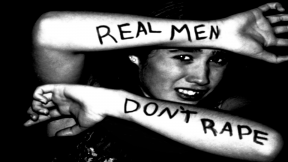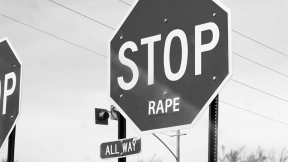
Rape was a war crime long before the United Nations ever declared it to be so in December 1993.
Forcing women into sexual intercourse, sexual slavery and subjecting them to sexual torture have all been used to varying degrees throughout history. The aim has almost always been to humiliate an enemy nation by degrading its women.
In the early 1990s, the horror of rape during war was revealed to the world through the images and incidents emanating out of Bosnia.
Reports of thousands of raped women, mostly Bosnian Muslims, surfaced. Girls as young as three were raped and murdered. Teenage girls and women were kept as sex slaves primarily by Serbian soldiers, performing domestic chores in the day and being gang raped at night.
The Serbian paramilitary groups used rape as war policy. Not only were camps established where women were repeatedly raped, but the victims who became pregnant as a result were held captive until it was too late to abort. These paramilitary groups were determined to make these women give birth to "Chetnik" (Serbian) babies as part of a systematic policy of humiliation and destruction which became known as ethnic cleansing.
In one heart wrenching scene from the 1993 documentary "Sarajevo: Ground Zero," a young Bosnian Muslim girl sobs uncontrollably and covers her face with her headscarf. "Don't show my face. I'm so ashamed. I've been raped by 50 soldiers," she cried.
These horrifying reports were the impetus for the call to declare rape a war crime and to prosecute it perpetrators on an international level.
Bosnia Task Force USA (BTF), an alliance of ten national Muslim organizations was at the forefront in pushing for the adoption of this resolution. In 1993, BTF and the National Organization of Women (NOW) organized joint demonstration in 100 cities across the United States to protest the rape of women in Bosnia. BTF also organized the largest rally by Muslims for Bosnia in Washington DC in May 1993. It was attended by 50,000 Muslims.
After this call for justice and redress, many other organizations, activists and legal scholars from America and around the world joined in. These ranged from human rights organizations to large and small women's rights groups.
These efforts culminated in the UN Commission on Human Rights passing a resolution on December 20, 1993 declaring rape to be war crime. The resolution also called for an international tribunal to prosecute these crimes.
Since then, although efforts to punish those involved in rape during times of war has been slow, there has still been progress. The International Criminal Tribunal for the former Yugoslavia at the Hague and the International Criminal Tribunal for Rwanda (ICTR) in Tanzania have both convicted defendants involved in rape during war in Bosnia and during the Rwandan genocide of 1994.








Add new comment